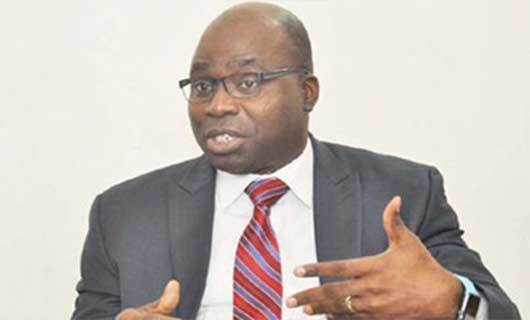Use of “Dirty Money” in Politics is Corruption Says ICPC Chairman

Professor Bolaji Owasanoye (SAN), Chairman, ICPC
The Chairman of the Independent Corrupt Practices and Other Related Offence Commission (ICPC), Professor Bolaji Owasanoye, SAN, has said that the use of “dirty money” for politicking was corruption as it involved the giver and taker working together to undermine the system.
Professor Owasanoye said this at a working group meeting organised by Transparency International & Civil Society Legislative Advocacy Centre (CISLAC) on Strengthening Accountability Network amongst civil societies held recently at Abuja.
The Chairman, speaking through Mr. Hassan Salihu, an Assistant Commissioner of the Commission, further stated that “This issue of dirty money in politics is with grave consequences capable of totally destroying the political and governance system of a nation, which the electoral processes are not an exception”.
The ICPC boss called for joint effort by all stakeholders to confront the problem stressing that information and intelligence sharing among anti-corruption agencies as well as supporting e-governance platforms were key to reducing the use of “dirty money” in politics.
In his goodwill message at the meeting, the Executive Director of CISLAC, Comrade Auwal Rafsanjani, stated that Illicit Financial Flows was a serious problem with $18 billion lost annually by Nigeria.
According to him, “This figure is likely going to increase if not controlled”.
Rafsanjani maintained that the availability of illicit funds to politicians during election periods compromise the electioneering processes and voters’ right to elect their desired representatives into offices.
His word, “Dirty money in Nigerian politics fuels impunity. The current practices where you have people with unexplained wealth coming over to take over parties, denies Nigerians the opportunity of voting for the right persons.”
ICPC Arrests Job Applicants For Presenting Forged Documentation
The Independent Corrupt Practices and Other Related Offences Commission (ICPC) has today arrested some job applicants for presenting forged certificates and academic records during the on-going recruitment interview exercise by the Commission.
Some of the false documents presented included Declarations of Age, School certificates, and other documentation that showed evidence of tampering. This is contrary to and punishable under Section 25 (1) of the Corrupt Practices and Other Related Offences Act 2000.
The suspects have been detained and are being investigated by the Commission.





